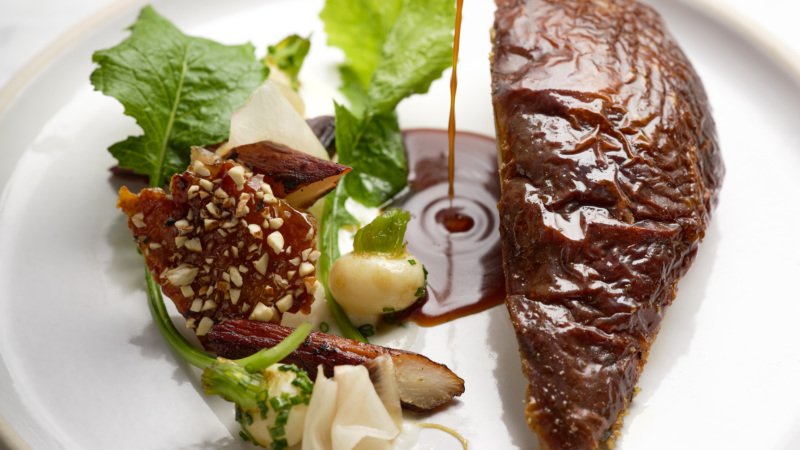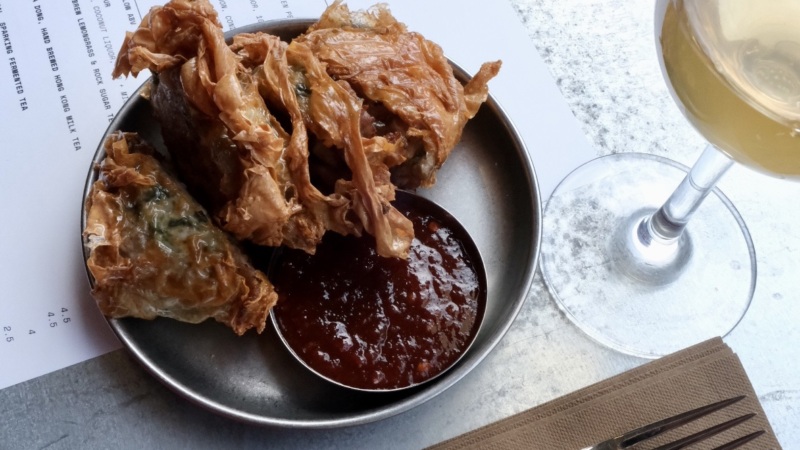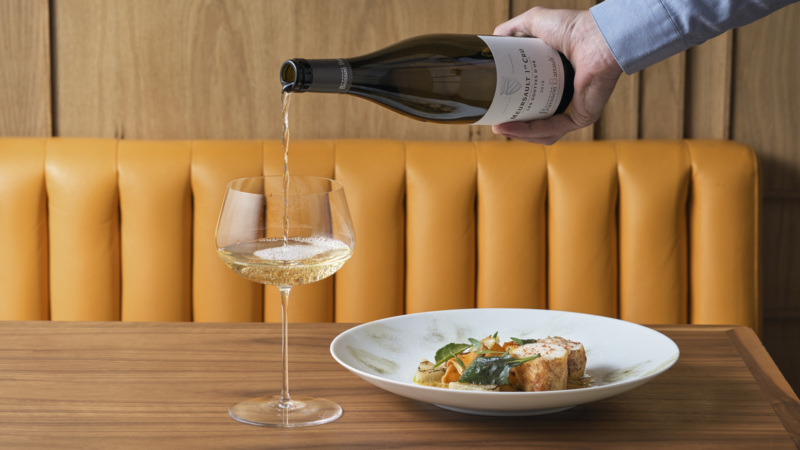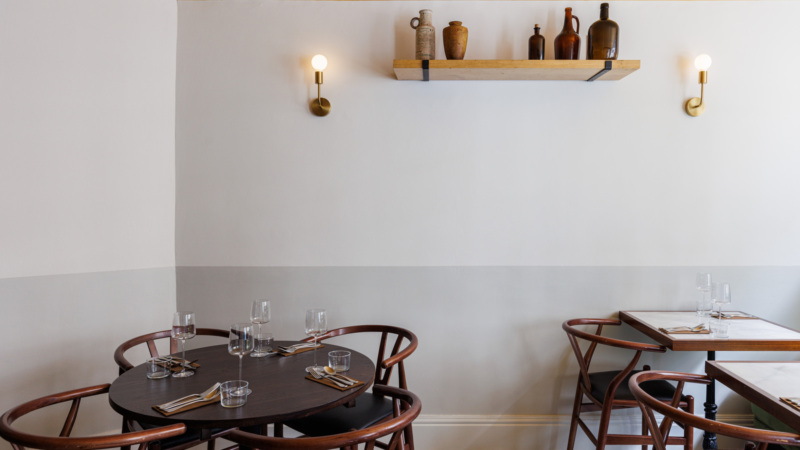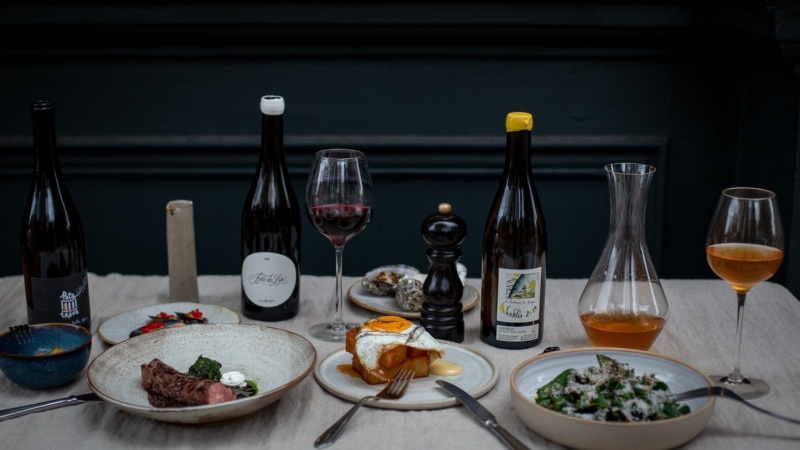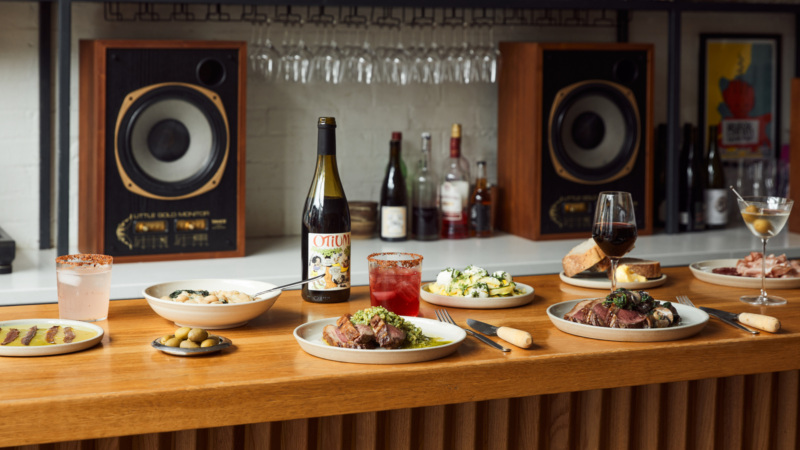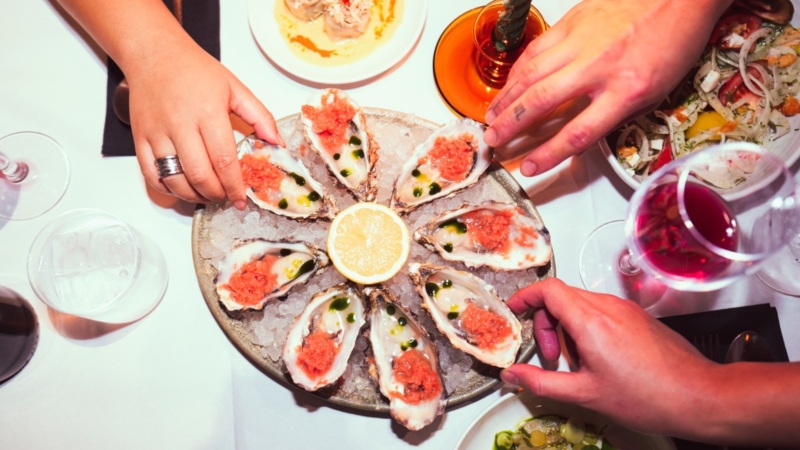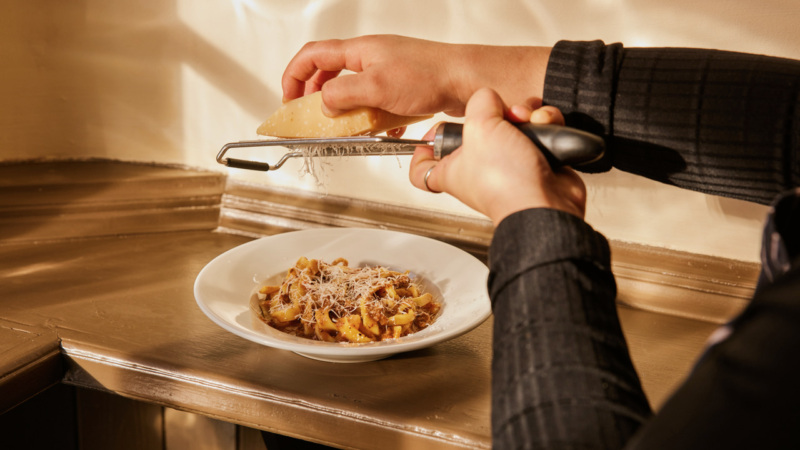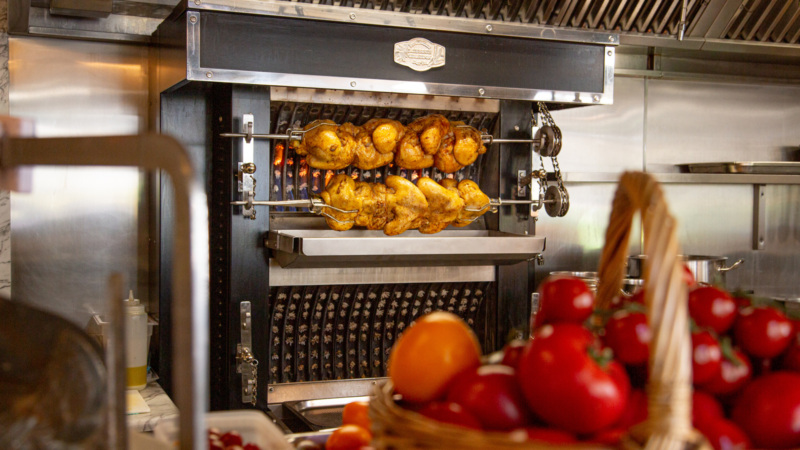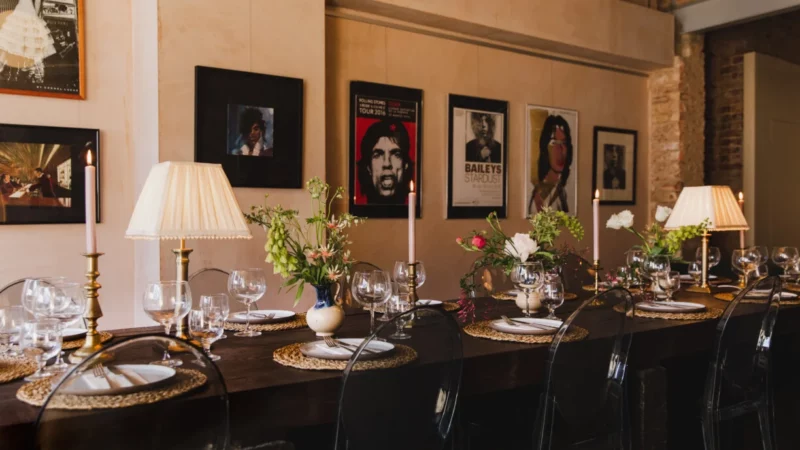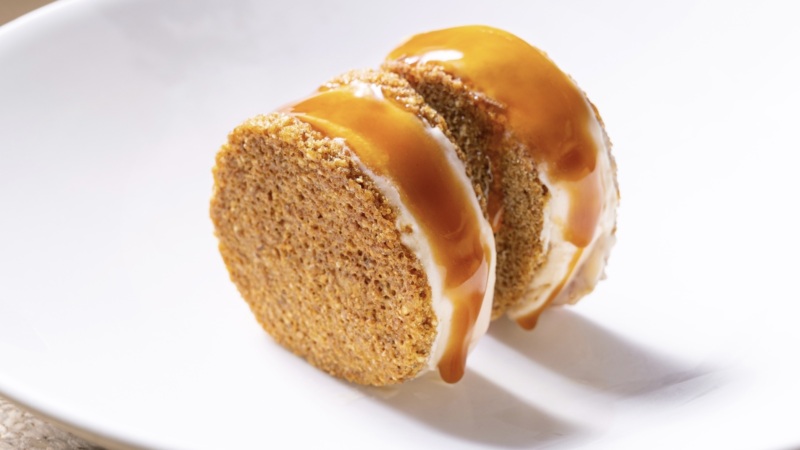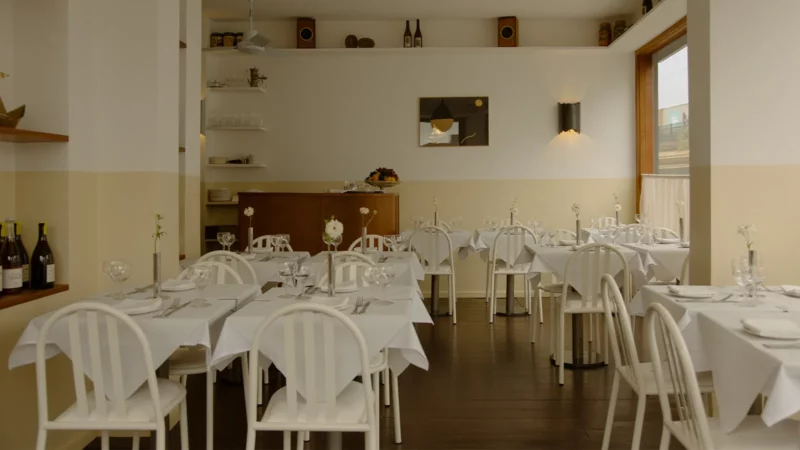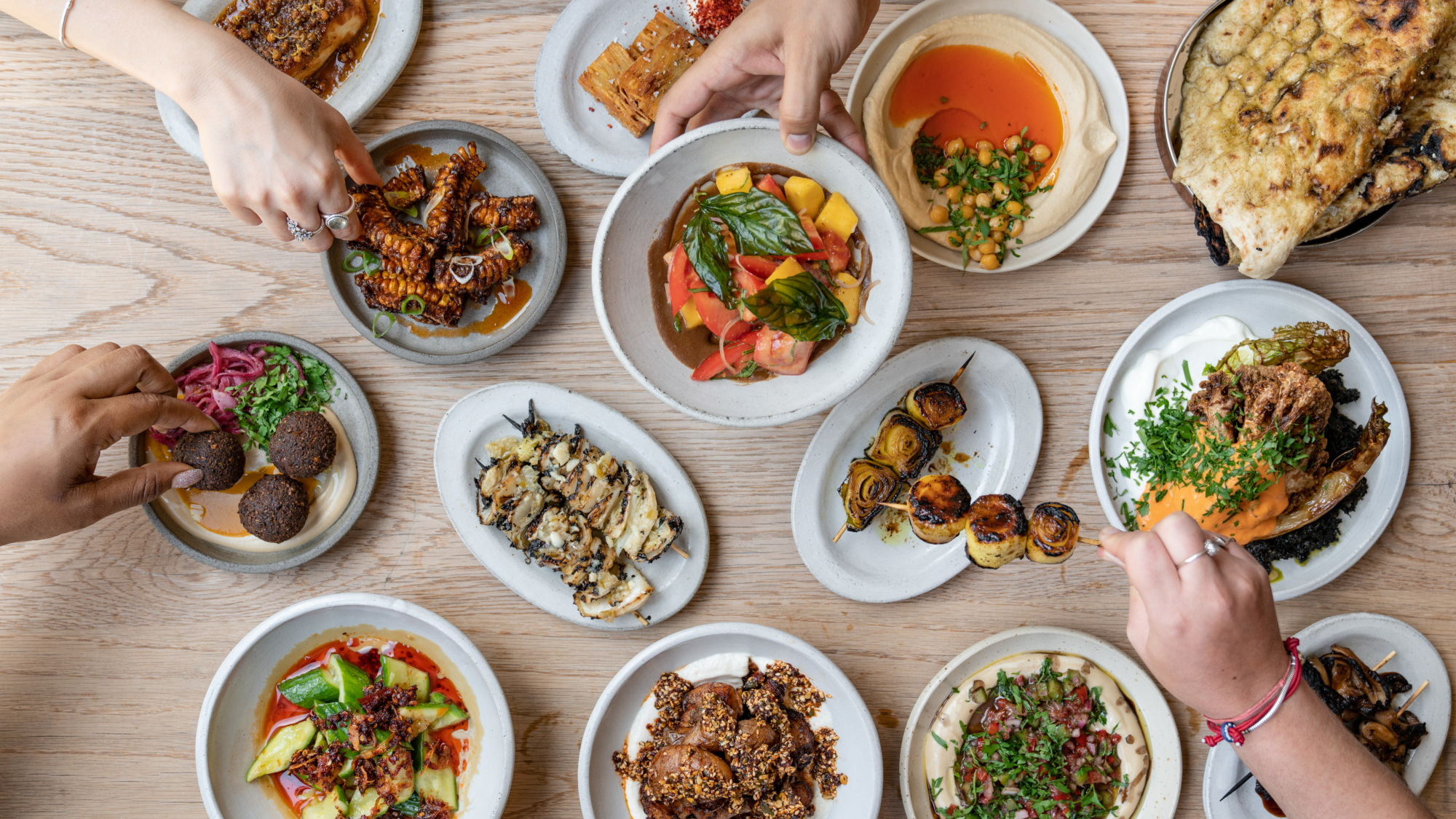
In Soho, Bubala Continues to Reshape Expectations of Middle Eastern Cuisine
Bubala in Yiddish is a term of endearment meaning sweetheart or darling. It’s a fitting sort of word for Marc Summers and Helen Graham’s Spitalfields Middle Eastern restaurant which has won our hearts. This July sees the pair take their playful, vegetarian cuisine to a new audience and a new level, as they open a second site in the middle of Soho. Here are six things to look forward to at Bubala Soho.
1. Bubala’s new Soho site is pretty special, in more ways than one.
Summer launched Bubala as a pop-up in 2018. Graham came on board soon after (Summers found her on Facebook) and the first bricks and mortar Bubala opened in Spitalfields in 2019 to glowing reviews from both national and London critics (Jay, Marina and Jimi all loved it). The East London site has resonance for Summers and Graham, both of whose grandparents grew up in the area, once the heartland of London’s Jewish community.
Bubala Soho was never in the original business plan, but the pandemic presented an opportunity they could not refuse. Number 15 Poland Street was the previous home of Vasco & Piero’s Pavilion, which was established in 1971 and was something of a Soho Italian institution (happily, it has now relocated round the corner to D’Arblay Street). Summers used to eat here with his family as a kid. At 18, when he expressed an interest in a hospitality career, his father sent him in to speak to the chef “probably to scare me off going into cheffing.” His dad’s plan worked – for a time – and Summers went to university to study business instead, before training as a chef at 25 and eventually switching to a general manager role at Josh Katz and Matthia Bianci’s Berber & Q.
To come full circle in Soho is, says Summers, quite crazy. “I can literally remember where we sat and had that chat.”
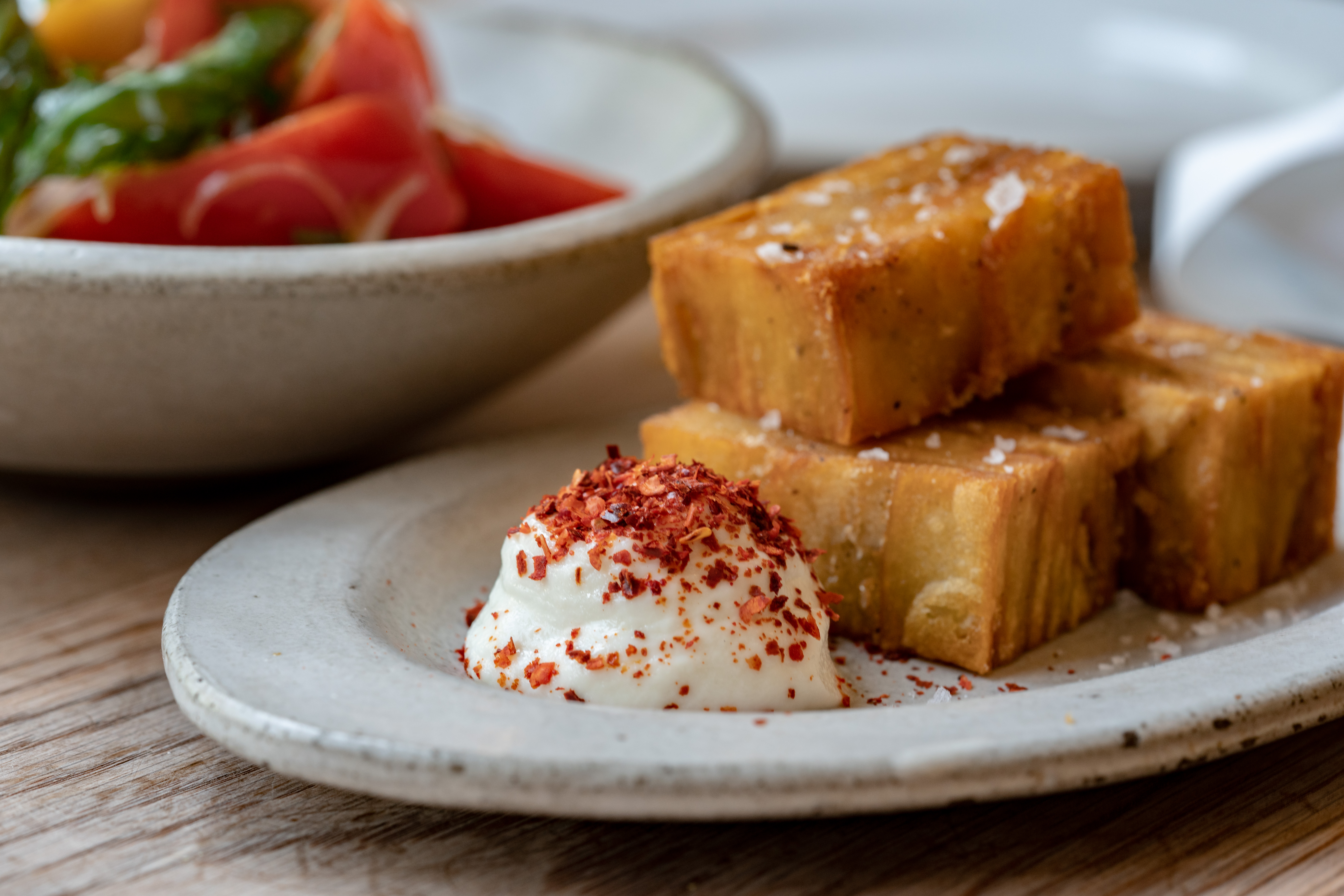
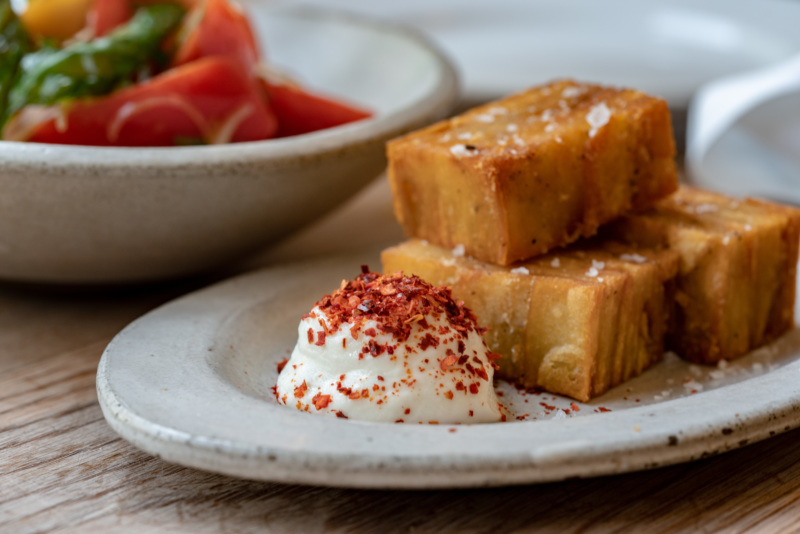
2. The menu at the new Soho site is all the best of Bubala, with a few surprises.
- Why The New Parrillan Borough Yards Should Be On Your Summer Hit List
- Five Things To Know About Caravel, the Spiteri Brothers’ New Islington Restaurant
- Everything You Need To Know About Café Cecilia, Max Rocha’s New Restaurant
- Everything You Need to Know About Kudu Grill, Amy Corbin’s New Restaurant
Bubala’s Spitalfields regulars nurse a near-fanatical obsession with Bubala’s irresistibly silky hummus with pine nuts and burnt butter; the anything-but-traditional confit potato latkes with toum and Aleppo chilli; and the fried aubergines with zhoug and a drizzle of date syrup.
“All the best loved things are coming,” Graham reassures us, ‘they’ll just have a slightly different look. We did talk about changing the formula around a little but it didn’t feel right because it’s what we do best. It’s not going to be a whole lot different but for a Bubala customer, there will be a lot of surprises.” Pleasant surprises, such as the halloumi (from St James Dairy) which at Spitalfields is drizzled with black seed honey, but at Soho, comes with a special camomile honey they’ve developed.
Graham’s fascination with the possibilities of live fire cooking continues to grow: “I love cooking on fire. I love the smokiness and the charredness. All our skewers are cooked on the grill; all our bread touches the grill; braised vegetables are finished on the grill for smokiness. If you remove that from a Bubala kitchen, that’s a big part of what makes our food our food.”
The yakitori grill in Spitalfields is ‘teeny-tiny’. For the Soho site, they’ve upgraded to a larger tiered grill. The expanded capacity allows her to, at last, do one dish she’s long wished to do: baba ganoush with curry leaf oil. “It feels like an opportunity to bring more ideas to life. I have the opportunity to do recipes I’ve been sitting on for a few years.” Their baking repertoire has grown too, into pitas, challah and Yemeni layered malawach as well as the laffa bread they’re known for.
Other new dishes to get excited about: Chinese cabbage, marinated with cardamom and preserved lime, then grilled over the coals; malawach with stracciatella cheese, Kalamata olives and smoked aubergine honey; and cauliflower, brined for three days, then deep-fried, and served with Tunisian spinach condiment bkeila and velvet tomatoes emulsified with chilli, garlic and yoghurt. There are new flavours of gazoz sodas too, homemade using fermented fruit, herbs and spices.
“It’s shaping up to be an exciting menu,” says Graham.
3. Bubala’s playful, freewheeling cuisine pulls in influences from across the Middle East and beyond.
2022 is a big year for high-profile Middle Eastern restaurant openings in London. Not only is there Bubala mark two, but also a new site for Honey & Co, the first London outpost of Eyal Shani’s Miznon, and Pascor, a new restaurant from former Palomar chef Tomer Amedi.
Summers and Graham, both with Ashkenazi Jewish ancestry, were acquainted with Middle Eastern food at a young age; Graham through falafel in Golders Green; Summers through summer holidays spent in Israel. “I just loved everything about the food, with so many different flavours and different plates to be shared” says Summers. “Everything about it was so hospitable and fun to be around.”
“It’s a really difficult road to tread because everyone’s got their own version of a lot of the same dishes. Who are we to say where it comes from?” – Marc Summers
The latkes are a ‘little nod’ to his Jewish roots, and influences are pulled from the dynamic modern Israeli scene in Tel Aviv but ‘Middle Eastern’ is the term they’ve settled on to describe the food. “It’s a really difficult road to tread because everyone’s got their own version of a lot of the same dishes,” says Summers. “Who are we to say where it comes from? We take influences from Turkey, Lebanon, North Africa…” Bubala pantry stapes such as tahini, za’atar and sumac are widely used across the region.
Ingredients, notes Graham, take circuitous routes, some following the Jewish diaspora, where Sephardi and Ashkenazi traditions have mingled. The pickled mango condiment amba, for instance, has roots in India but began in Iraq, then travelled to Israel and on to the UK. “There’s always a fresh narrative and a different way to view an ingredient and I quite like taking an ingredient like amba, for example, from Iraq which I experienced when I travelled to Israel and then in the restaurant, we’ve turned it into a salad dressing or a beurre blanc. That’s a fresh interpretation because I haven’t seen than anywhere else. I guess that’s where our playfulness comes in.”
4. Bubala wants to take vegetarian cooking to the next level.
The food at Bubala is vegetarian and often vegan, which neither Summers nor Graham are. This has some people scratching their heads. But in Summers’ experience working the floor at both Berber & Q and Bubala, many non-vegetarians are increasingly ordering meat-free. Bubala isn’t actively marketed as vegetarian, however. “We don’t really shout about it. We want it to be great food that just happens to not have meat.”
Summers speaks with the zeal of the unconverted: “For me and Helen, and we’ve both spoken about it a lot, there’s so much creativity involved with vegetables and so many new dishes that haven’t been seen before. There’s so far vegetarian can go that hasn’t been seen yet and we really want to be there for that and hopefully be at the forefront.”
The fact that it’s easier to control food waste is another big plus: “We don’t throw much in the bin. We get a sense of pride from that. If fillet steak goes off, it goes in the bin. If you’ve got veg in the fridge and you can see it’s turning, you can pickle it.”
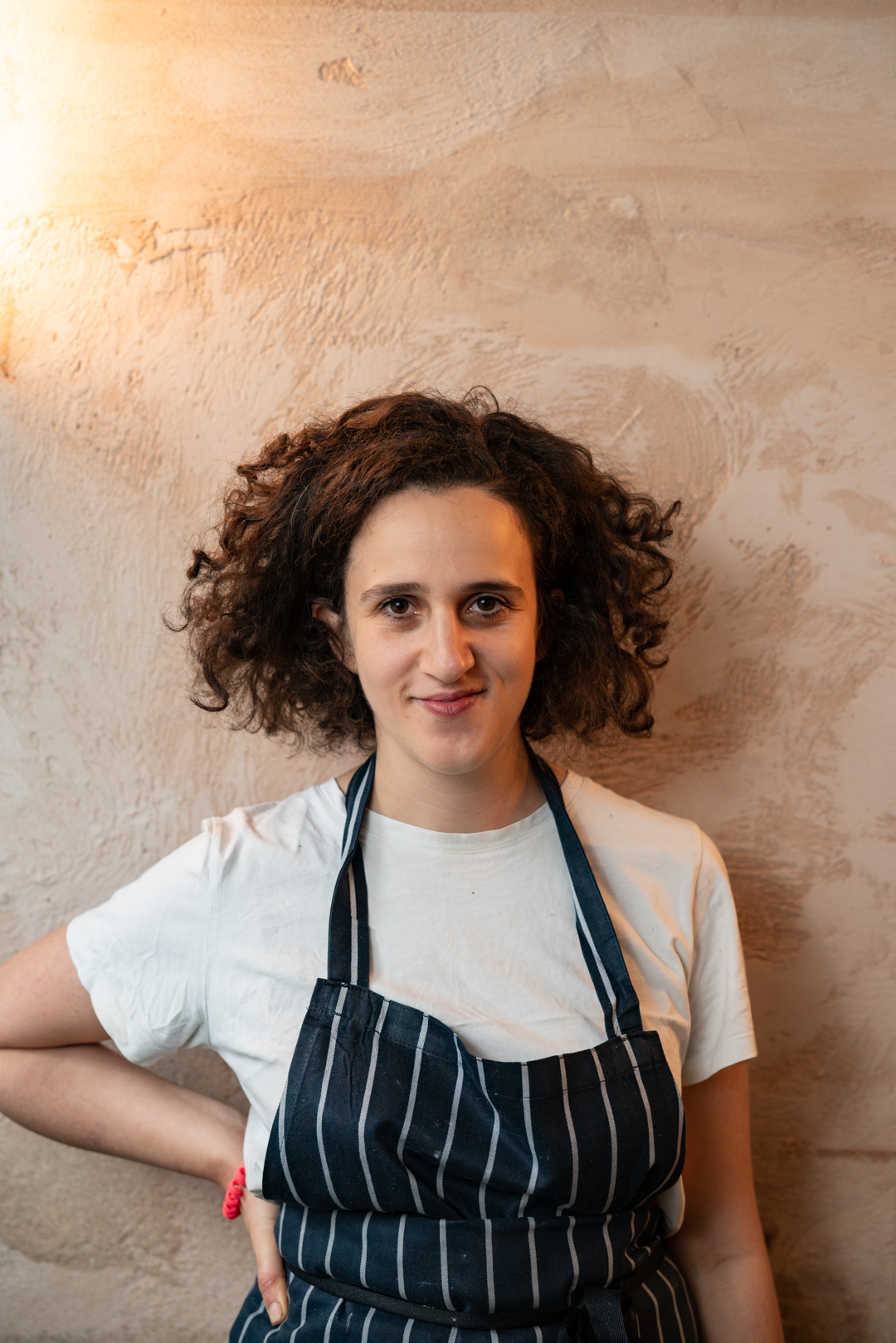
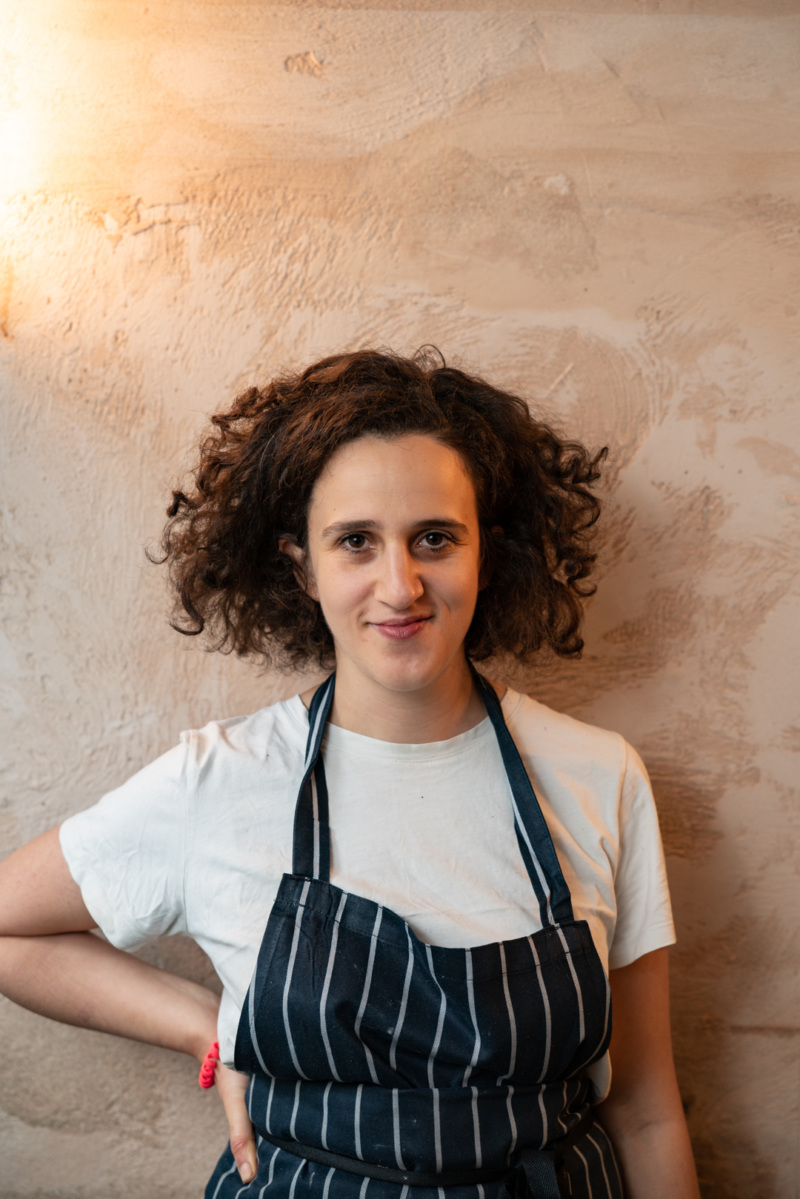
5. Helen Graham has come into her own as one of London’s most exciting chefs.
Graham, an art history graduate, has worked at modern Israeli institutions the Palomar and the Barbary and at the original Good Egg in Stoke Newington. She’s also worked as a recipe tester in Yotam Ottolenghi’s legendary Test Kitchen (you may have cooked her sumac-roasted strawberries and courgette and puffed freekeh from Simple).
She was encouraged to experiment at the Test Kitchen. Pressed to describe her creative process, she struggles. “It’s always quite random. It could be anything from something I’ve tasted on a holiday five years ago that just popped into my head to something I ate yesterday or something I saw in a recipe book a few weeks ago. I wish there was a fixed process, it would be a lot easier.” Often, she’ll scour the spice shelf for what ‘feels exciting’. “I have a palate that loves sour tangy flavours so a lot of the dishes have preserved lemon, preserved limes, amba. I’ll start with an extreme flavour, then work other flavours in to temper that.” Summers has a very different palate. Notes Summers: “We know a dish is great when we both love it. That’s the test of it.”
The opening of the second Bubala sees Graham become executive chef for the first time. “It’s really lovely to be able to step out of the kitchen and focus on the creativity and the menu development. I’m not in service anymore so I have a more regular lifestyle. I can go to restaurants and get ideas for things. I’m really proud to have got the kitchen to that place. That was always a dream.”
6. Opening their second site in the throes of a staffing crisis has made Bubala redouble its efforts to be the best employer it can be.
Issues with recruitment delayed the Soho opening from April to July. “It’s been tough,” says Graham. “There are fewer chefs, but on the flipside, I’ve found that the chefs that have stayed in the industry really do want to be doing it.” Bubala’s aim is to engender a happy work culture and offer new recruits a compelling package. They have in place progression plans for staff training and development, while perks include paid birthdays off, cost-price wine, just one double a week, ‘family meal’ (staff food in hospitality lingo) twice a day, staff parties, and a welcome tote bag of goodies from the Bubala kitchen.
Summers isn’t satisfied yet. “What we’ve done is good but we want to keep going. We know that the whole of the industry is trying to change. We have to. It’s our responsibility to make sure the team are really looked after. It can be a really difficult role. We just want to make sure that it isn’t as crazy as it used to be and that people actually enjoy coming to work.”
Hilary Armstrong is a London-based journalist and editor. Follow her on Instagram and Twitter. Follow Resy, too.



